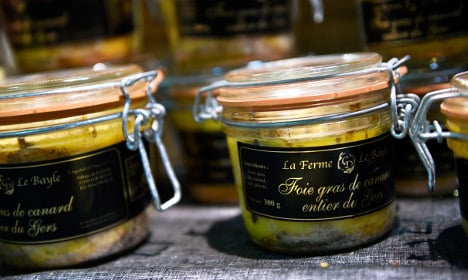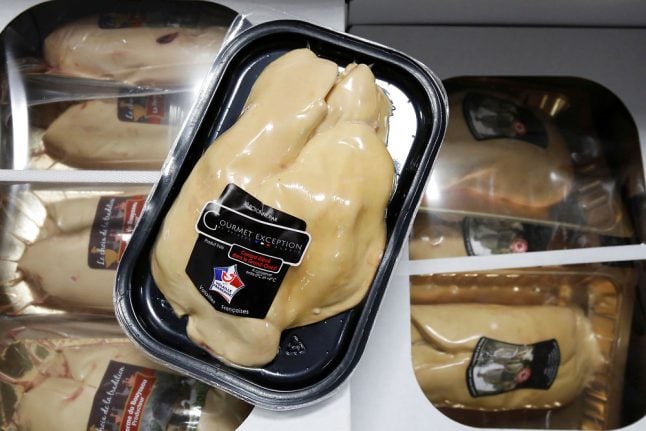Jean-Jacques Caspari of the foie gras industry association CIFOG warned on Tuesday of shortages and soaring prices that were likely to last even beyond this year's festive season.
Foie gras — consumed in lavish quantities in France at Christmas and New Year — is the “fatty liver” of geese and ducks that have been force-fed grain.
“We can expect an increase in the price of foie gras of between 10 and 20 percent,” he said, adding that this year would see a 25 percent drop in production the 18,820 tonnes produced in 2015.
He said the industry still had “12 to 18 months” before it can expect to recover from an avian influenza scare that broke out in November last year at a chicken farm in the Dordogne region.
The highly virulent H5N1 strain of the bird flu virus is lethal to birds but does not infect humans easily, although when it does it is fatal in about 60 percent of cases, the World Health Organization (WHO) says.
The potential for infection comes when a human is in very close contact with a live bird that is sick with the disease.
Agriculture officials responded to the outbreak by imposing restrictions on poultry farms until mid-May.
Abattoirs will not resume their activities until August 16, the date by which new force-fed birds will be available for slaughter.
CIFOG estimates a loss of 270 million euros ($300 million) for the industry.
The bird flu scare also hit exports of the delicacy, expected to drop from 4,560 tonnes in 2015 to 3,160 tonnes this year.
France usually produces 75 percent of the world's foie gras.
Rival foie gras producers Hungary and Bulgaria are expected to fill the gap in France and make inroads into markets that stopped importing from France, notably Japan's.
The luxury dish has become a battleground between animals-rights campaigners and defenders of France's gourmet traditions.
Force-feeding — known as “gavage” in France — has been banned in several countries but is legal in France.



 Please whitelist us to continue reading.
Please whitelist us to continue reading.
Member comments